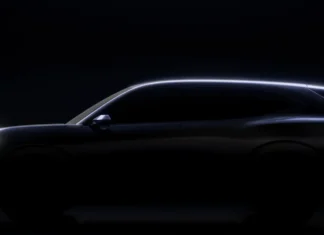
Front passenger crash safety has been rock solid over the past several years.
The Insurance Institute for Highway Safety (IIHS) focuses on improving car safety year-over-year, and the latest pain point is rear-seat passenger safety. While major innovations dramatically changed front occupants’ risk of injury in an accident for the better, the latest battery of tests covering midsize sedans show there’s still plenty of work to do for those in the back. Of all the midsize cars for which the IIHS recently released test results, only the 2023 Honda Accord scored the highest possible “good” overall rating.
“In most of the midsize cars we tested, the rear dummy slid forward, or ‘submarined’, beneath the lap belt,” said IIHS President David Harkey. Inadequate rear passenger restraints that lead to such behavior cause the belt to ride up from the pelvis onto the abdomen, increasing the risk of serious internal injuries. “In the three poor-rated vehicles, measurements taken from the rear dummy also indicated likely injuries to the head or neck as well as to the chest.”
Those three vehicles, scoring the worst rating in head/neck and chest areas, are the Hyundai Sonata, the Kia K5 and the Volkswagen Jetta. As a result of failing those tests, all three scored the “poor” overall rating. In the K6 and the Sonata, the rear shoulder belt also moved out of position, toward the dummys’ necks.
For these latest tests, the IIHS uses a dummy roughly the size of a small woman or a 12-year-old child, to more accurately represent the average profile of passengers.

Nearly all of the seven vehicles listed here exhibited poor rear seat restraints.
The IIHS further praises the recently redesigned Honda Accord, saying it “provided stellar protection in the back seat. Measurements taken from the rear dummy showed no heightened risk of injuries, and the rear restraints did a good job controlling the dummy’s motion. By contrast, the Nissan Altima and Toyota Camry also had issues with dummys submarining beneath the lap belt in the “moderate overlap front test”, a test meant to simulate the front corners of two vehicles crashing into each other at 40 mph.
As you’d expect given these results, along with good headlight design and advanced accident avoidance systems, the Honda Accord earns a Top Safety Pick+ rating from the agency for the 2023 model year. It’s worth noting that most of the others retain their TSP+ results as well, including the Toyota Camry, Nissan Altima, Subaru Outback and Kia K5. The Hyundai Sonata gets a Top Safety Pick nod, while the Volkswagen Jetta is the only car among the seven tested here to not earn an IIHS accolade at all. For this year, at least, getting a poor rating in rear passenger injury measurements doesn’t disqualify a car from Top Safety Pick on its own, although that will certainly be a consideration for the award moving forward.
Another bit of context: The 2023 Honda Accord is the newest vehicle on this list in terms of when it was redesigned. The XC70 Camry’s design dates back to 2017, while the current Altima, Jetta, K5, Outback and Sonata all launched between the 2019 and 2020 model years. That’s not to say you should excuse these cars’ results if you’re deeply concerned about rear passenger safety, but it’s worth keeping in mind these cars will likely improve in that area when they see their next redesign. The 2025 Toyota Camry, for example, should emerge sometime in the next several months, as prototypes have been spied earlier this summer.
While sedans still sell in the hundreds of thousands each year, crossovers and larger SUVs are also a crucial part of the market to watch for these updated crash tests. Odds are, some models will have some serious improvements to make in rear passenger safety as well.























